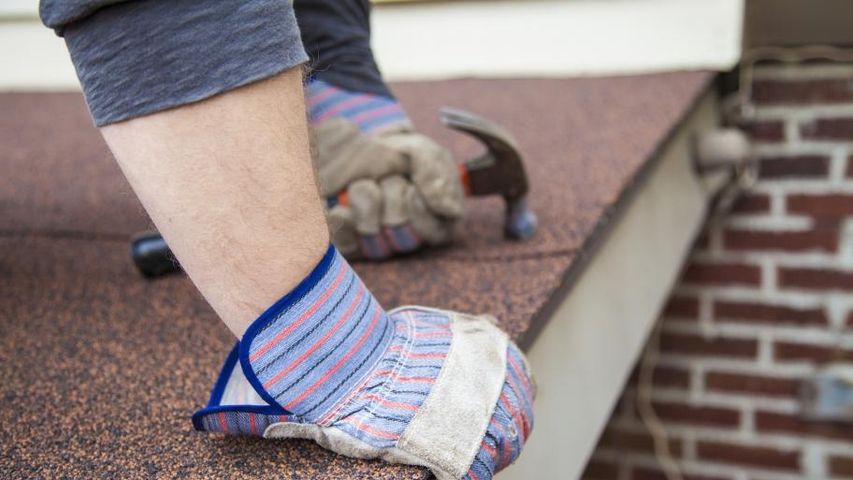Do I Need Special Insurance When Remodeling?

Angie’s List member Dave Hogan says Michael Jodoin, owner of MJ Masonry Corp. in Bristol, Rhode Island, told a good story when his mother hired Jodoin for a driveway repaving job.
“He’s well-spoken, clean-cut and seems to know his trade well,” says Hogan, who lives in Pawtucket, Rhode Island. “We found out later that he canceled his insurance just five days after our contract was signed, and he never reinstated it. Had he or any of his workers injured themselves while working on her property, my mother’s insurance company could have been sued.”
Hogan says the company was highly rated when he hired them in 2012, but later landed in the Penalty Box for failing to respond to another member’s complaint about not doing a job or returning her deposit. Hogan says that once he and his mother confirmed that Jodoin had canceled the insurance, they ordered his crew to stop working until Jodoin provided proof of insurance.
Jodoin claims he was insured at the time and doesn’t recall promising to provide proof. Hogan says Jodoin didn’t do the job and ultimately returned the deposit paid by his mother. Rhode Island Contractors’ Registration and Licensing Board records show Jodoin hasn’t held a license since 2010, and MJ Masonry is excluded from category and keyword searches on Angie’s List due to the Penalty Box case and for failing a license audit.
With any kind of remodeling work, but especially expensive, long-term projects such as additions or particularly dangerous work like roofing, homeowners should pay attention to insurance matters beyond just checking the initial insurance certificate. Take steps to contact both your own and the contractor’s insurance companies to confirm coverage under both policies. Otherwise, highly rated insurance experts say you could be exposing yourself to serious liability.
Related Article
How Unlicensed Contractors Can Cost You
Licensing laws vary by state, so check requirements and verify contractor licensing before hiring.
Bob Davenport, president of Humble & Davenport Insurance Brokers in Renton, Washington, advises homeowners to always get themselves added in writing as an additional insured on a contractor’s general liability policy. This can usually be done for no cost or a nominal fee.
“This verifies the insurance is active, as it’s dated and comes from the insurance agent,” he says. “And if he misses a payment and the insurance is canceled, they have to send you notice.”
Aaron Sadler, owner of T-Rock Roofing & Construction in Argyle, Texas, says he offers the additional insured option to all of his clients at no charge. He advises anyone hiring a contractor to look very carefully at the insurance paperwork. “I’ve seen people Photoshop dates onto insurance certificates and flash it to the homeowner,” he says.
Sadler also strongly advises homeowners to look for workers’ compensation insurance, which protects them in the event a worker gets injured while on their property. “A lot of people never ask about that,” he says.
Before she hired Masterpiece Finishes in Belchertown, Massachusetts, for a powerwashing and painting job, member Nancy Orth researched insurance advice and asked owner Gary Clark for the additional insured certificate.
“I asked to be placed as an additional insured on his liability policy for $1,000,000,” the Greenfield, Mass., resident says. “When I asked him about it, he said, ‘Yep, that won’t be a problem.’ I asked him if it seemed like a weird thing to ask, and he said, ‘No, it sounds like you’re an informed consumer.’”
Paul Magalhaes, president of Miramar Insurance Agency in Paramus, New Jersey, says he advises his clients to seek out additional insured status and to confirm their contractors hold at least $1 million in both liability and workers’ compensation coverage.
“You’re basically getting free insurance,” he says. “Just having a contractor insured doesn't necessarily protect you. You don’t know the degree of insurance he has. People will ask, ‘Are you insured?,’ but they don’t know to take it to the next level.”
fea_liability_memberpic_JWResources.jpg

Before you hire, always verify a contractor's liability and workers' compensation insurance. (Photo courtesy of member Janet H. of Laurel, Miss.)
Angel O’Neill, co-owner of Huntingdon Roofing in Memphis, Tennessee, says she offers additional insured certificates on every job, but most homeowners are unaware of it. “I would say about 25 percent request it on their own, but we always want to inform people,” she says. “They usually get a copy sent directly to them within 10 minutes. If something happens and the insurance company gets involved, being listed cuts out a lot of garbage.”
O’Neill says in 17 years of business, she’s only had to use her liability policy once. “We had one of those unpredictable storms come through in the middle of a two-day roofing job, and it damaged the home,” she says. “The insurance covered everything, and it ended well, even though it had been a horrible thing to go through.”
She says the additional insured status helped her and the homeowner.
“It absolutely expedited the process,” she says. “It made them feel safer knowing their name was on the check. If you’re not an additional insured, the check is made out to the roofing company, and if they’re not a good company, they could take the money and run.”
Michael Herzog, an agent at James Zander and Associates in Dallas, says homeowners should take common-sense precautions to provide a safe working environment for the contractor and further protect themselves from liability.
“In most cases, you’re protected by their liability insurance,” he says. “For example, if you have a three-story house and [the contractor] puts up scaffolding on soft ground, and it falls over, he’s the professional [and should be liable],” Herzog explains. “But if you have dogs in your house that you don’t properly control and they bite one of the workers, you’re liable.”
Davenport suggests talking in advance with the contractor about safety issues and how you can provide the best working environment. “You can’t protect yourself against everything that’s going to happen, but you can verbally walk through the job with the contractor,” he says. “Learn what you can move or block off to not interfere with him.”
The gray areas and particular dangers come when third parties get involved — if, for instance, that ladder falls over and hits someone on the sidewalk, or a contractor cuts into a water line that damages the next-door neighbor’s property. Experts say the additional-insured paperwork protects you in those cases.
“If my friend is visiting and a bucket of paint falls and cracks his head, his attorney is going to sue me and the painter for damages,” Magalhaes says. “But my liability is going to be waived because the painter’s policy covers me as an additional insured.”
Herzog and Davenport say homeowners should ask for the same insurance information from subcontractors.

About the Business
Have a question? Ask the experts!
Send your question

